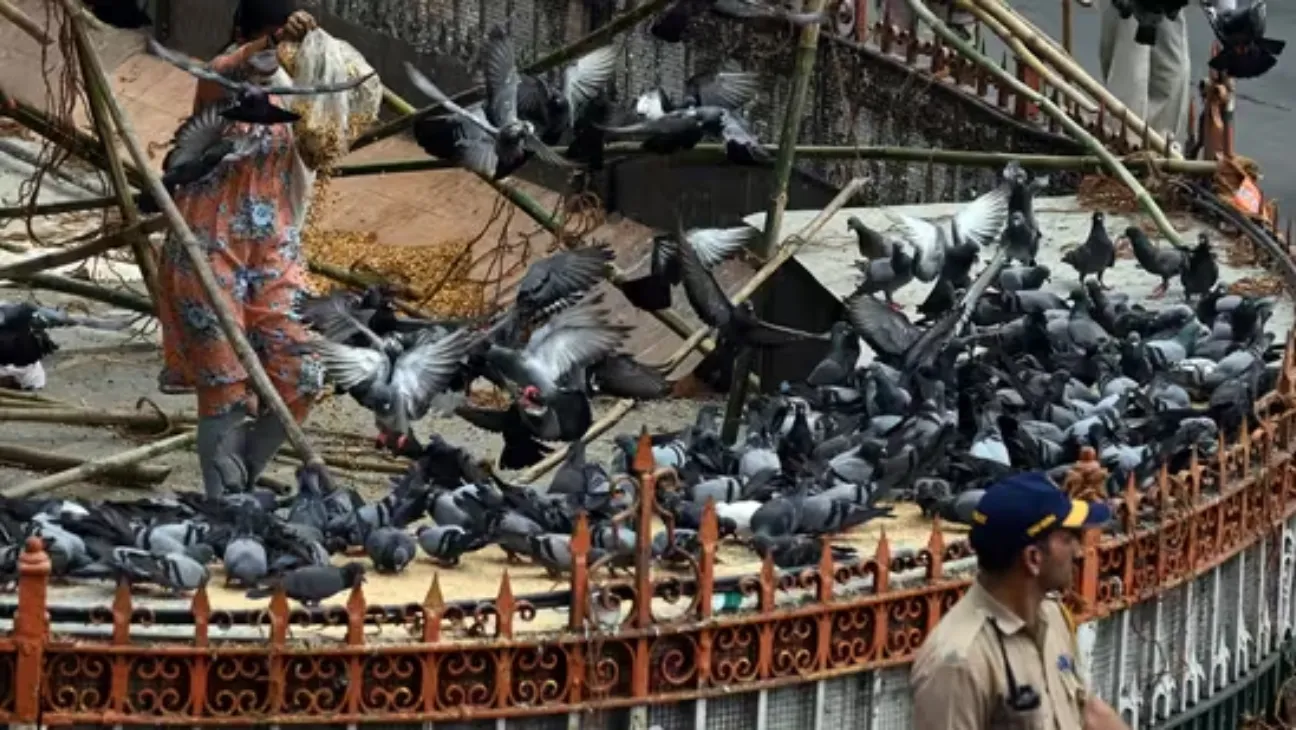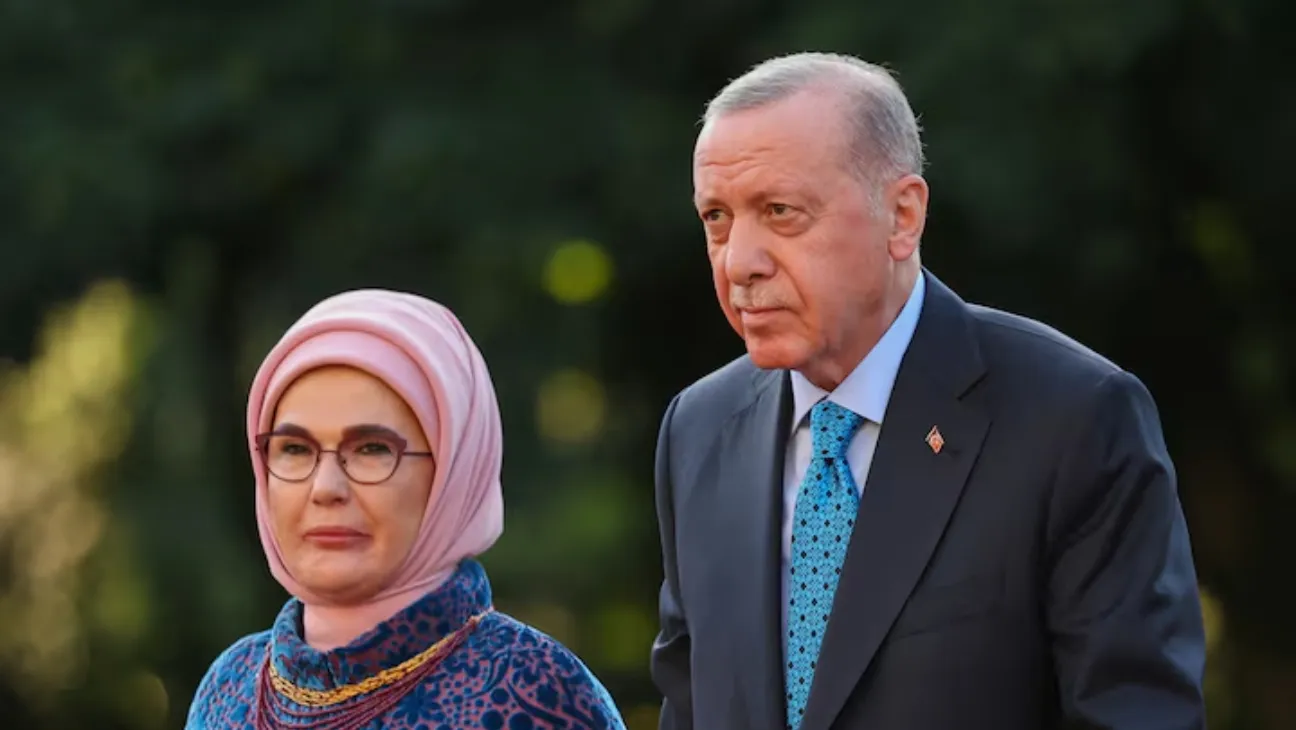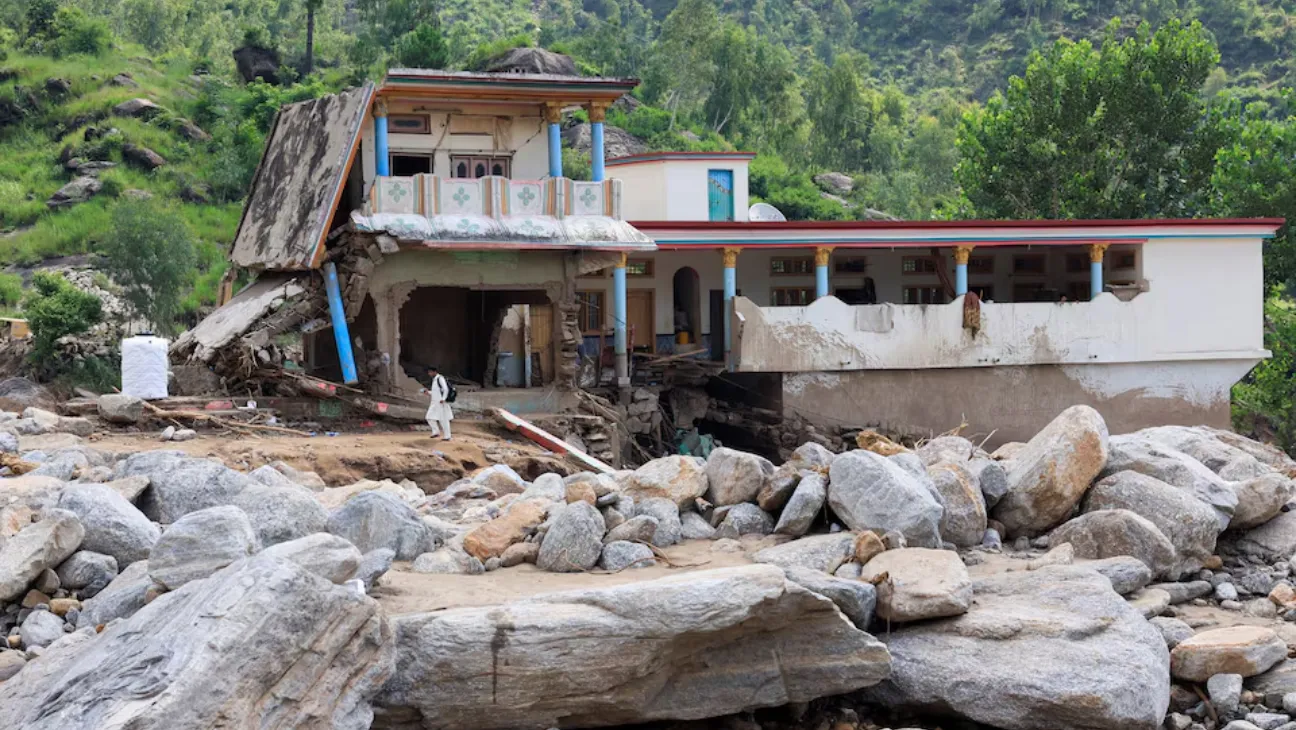A chaotic scene unfolded Wednesday morning in Mumbai’s Dadar neighborhood when over 1,000 members of the Jain community descended on the Dadar Kabutarkhana traffic island. Despite a court order banning pigeon feeding at the site, protestors stormed the area, tore down BMC’s protective plastic sheeting, and dumped sacks of chana for the birds—right in front of police officers and media crews.
The incident occurred a day after Chief Minister Devendra Fadnavis met community leaders over the issue and before the Bombay High Court was slated to hear it.
Several eyewitnesses and officials from the BMC said that the gathering had started as early as 9.30 am near the Jain temple opposite Kabutarkhana. Wielding knives, protesters, most of whom were women, cut through the plastic cover set up by the BMC, Officers on the ground looked lost and were unable to prevent the mob.
“They came prepared,” said a local shopkeeper. “The message was clear—they were going to feed the pigeons no matter what.”
Hours after the incident, leaders from the Dadar Kabutarkhana Trust and other Jain community members denied involvement. “The protest had been postponed. We sent messages the night before,” claimed trustee Sandeep Doshi. “This was done by outsiders trying to paint us in a bad light.”
But officials aren’t convinced. G North ward civic official said they were informed about the protest being called off, but were surprised by the sudden gathering. The official said: “We are await the High Court decision, but this kind of public defiance is concerning. Critics asked why no arrests had been made.
Chetan Kamble, founder of the local NGO Chakachak Dadar, was present when the vandalism occurred. “They tore down the BMC setup and violated the High Court order while the police watched,” he said. “No FIRs, no action. It sends a terrible message—that some groups can break the law without consequence.”
Public anger spilled over online as well. Photos circulated showing the Jain temple’s own netted balconies, prompting backlash over hypocrisy—pigeons are welcome on public property, but not near the temple?
The BMC defended its ban on pigeon feeding by citing health risks, pointing to what doctors have long warned: that the birds’ droppings and feathers are a serious danger to people’s breathing in a city this crowded. That argument, however, fell on deaf ears with community leaders, who immediately mounted a challenge.
“Smoking and alcohol are dangerous too. They’re not banned—just carry warning labels,” Sandeep Doshi said. “Why not just post a sign saying those with respiratory issues should stay away?”
Others echoed that sentiment. Vijayraj Parmar, a temple trustee, said the protestors only acted after seeing “hundreds of pigeons dying” due to the feeding ban.
Meanwhile, NCP (SP) legislator Rohit Pawar visited the site and backed the community’s intentions. “The birds are dying. That’s injustice,” he said. “We should find an alternative. No one is trying to insult the court.”
Former corporator Puran Doshi suggested the ban was politically motivated. “Why focus only on pigeons as a health hazard?” he asked. “Let’s be honest, the government and BMC are acting to please nearby buildings.”
Chief Minister Fadnavis offered a measured response. “We’re trying to find a middle ground,” he said. “We’ll present suggestions to the court that protect tradition without compromising public health.”
The Bombay High Court is set to hear the matter Thursday.
But for many, the damage was already done. The rule of law, some feel, took a backseat. Whether any action follows remains to be seen.









